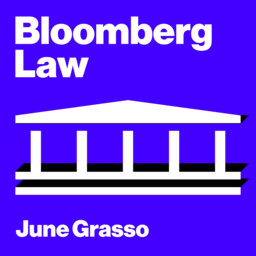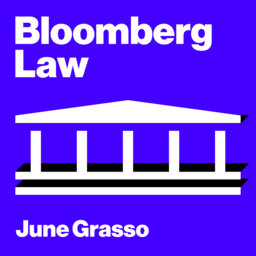Weekend Law: SBF Gets 25 Years & Trump's First Criminal Trial
Former federal prosecutor Michael Weinstein, a partner at Cole Schotz and Bloomberg legal reporter Ava Benny-Morrison, discuss Sam Bankman-Fried being sentenced to 25 years in prison. Mary Ziegler, a professor at UC Davis Law School, discusses Supreme Court arguments over the abortion pill. Bloomberg legal reporter Erik Larson discusses Donald Trump’s cash crunch and his first criminal trial starting on April 15th. June Grasso hosts.
In 1 playlist(s)
Bloomberg Law
Expert analysis on legal issues and cases in the news. Host June Grasso speaks with prominent atto…Social links
Follow podcast
Recent clips

Tariffs Struck Down, Erasing History & Climate Rule Revoked
36:40

Slavery Exhibit, Climate Suits & Zuckerberg Testifies
36:50

Trump Sued Over Erasing History at Parks & Harvard Sued Again
32:03
 Bloomberg Law
Bloomberg Law